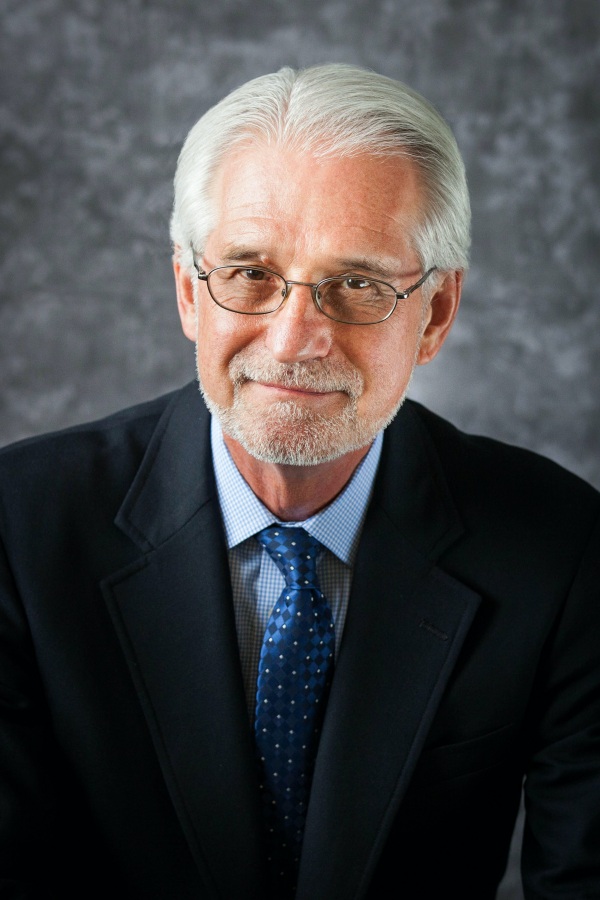Featured Guest
You’ll find this guest among our growing roll of Urban Champions.
-

Zita Cobb
Founder and CEO, Shorefast
-

Ted Howard
Co-founder and President, the Democracy Collaborative
-

Rosemarie Powell
Executive Director, Toronto Community Benefits Network
-

Colette Murphy
Chief Executive Officer, Atkinson Foundation
5 Key
Takeaways
A roundup of the most compelling ideas, themes and quotes from this candid conversation|
Additional Reading
& Resources
1. Bounce back or bounce forward?
Community wealth advocates are counting on the current crises to be a catalyst for a transition to a more equitable economy. There is an opportunity to not just return to business as usual, but create a “new normal,” when the current economic development paradigm is supplanted. We’ve seen this play out before, in the 30s and the 80’s – where “vulture capital” comes in and buys-up the local economy at rock-bottom prices and re-concentrates the wealth into the hands of fewer and fewer. That’s something we surely want to avoid. “If we miss this opportunity, shame on all of us.”
2. The chickens are plotting
One of the panelists likened the collective awakening to the possibilities of community-centric wealth-building, to the movie Chicken Run – where the humans noticed that the chickens were beginning to organize. Economic activity used to be the life-source of a community, but today “on a good day, it’s agnostic, and on a bad day its downright hostile.” A truly localized economy will “take care of every person, one at a time.” But first, we must ensure that any recovery funds do not become “bailouts,” but rather taxpayer investments with the community receiving an equity stake, to ensure a lasting legacy.
3. Show me the money
The number one issue identified by all the panelists, was access to financial capital. “There is some algorithm somewhere in Toronto that decides who gets a loan”. In other words, lending decisions are not conducted by sentient beings, and they certainly don’t consider the community in which the money is needed. “We don’t have our hands on the economic levers, we don’t follow where and how the money circulates, and we generally do not collaborate well.” There are different types and sources of money – not all of it comes from Wall Street. Public banks, which are gaining traction, capture and keep the money in community.
4. A hand-up, not a handout
A great social experiment is underway, with the creation of Community Benefit Agreements, and equity-seeking neighbourhood groups across the country are watching closely. Partnerships with major infrastructure projects and big development aim to harness the influx of capital by “multi-solving” previously intractable issues of poverty, disadvantage and marginalization. CBAs ensure commitment to local hiring in construction and operation, thoughtful amenities and social procurement. We need to stop “socializing the risks and privatizing the returns.”
5. Bring the money home.
The evidence is in: employee-owned companies “across the board” are generally better than investor owned companies on all kinds of metrics – wages are better, jobs are more fulfilling, productivity is up and layoffs are lower during times of crisis. Canada has some of the largest pension funds on the planet but they invest overseas, chasing high returns. Redirecting the investment’s focus back into communities allows “money to flow from big pockets to small pockets” and locals can return to owning the businesses they labour for.
|
Democracy Collaborative presentations can be found here and here
The Third Pillar, Raghuram Rajan. Penguin Radom House
Doughnut Economics, Kate Raworth
Full Panel
Transcript
Note to reader: Chat comments have been edited for ease of readability. The text has not been edited for spelling or grammar. For questions or concerns, please contact events@canurb.org with “Chat Comments” in the subject line.From Caroline Swan to All Panelists: 12:02 PM
Full Audience
Chatroom Transcript
Note to reader: Chat comments have been edited for ease of readability. The text has not been edited for spelling or grammar. For questions or concerns, please contact events@canurb.org with “Chat Comments” in the subject line.From Caroline Swan to All Panelists: 12:02 PM
12:01:08 From Sue Hallatt, CUI Staff: WELCOME! We’ll get started momentarily
12:01:44 From Michael Courey to All panelists: Great to see you all…. excited to hear your thoughts!!
12:02:10 From Caroline Swan to All panelists: Hello from snowy Central Newfoundland. Thanks for hosting this webinar. We look forward to hearing all of the perspectives.
12:03:55 From Sue Hallatt, CUI Staff: Greetings Attendees! Please be sure to send your chats to ALL panelists and attendees – not just panelists.
12:04:05 From Abigail Slater: thrilled to be on this call.
12:04:25 From Sarah Davies: Thank you for holding these conversations. I look forward to them and have been learning so much!
12:04:35 From Craig Gurney: Hello from South Wales, UK, from Craig Gurney, University of Glasgow @CraigTweeted. Looking forwards to this.
12:04:53 From Joanne OLeary to All panelists: Hello everyone, looking forward to panel guests’ thoughts
12:05:00 From Emily Wall, CUI Staff: Today’s panel:
Zita Cobb – https://shorefast.org
Colette Murphy – https://atkinsonfoundation.ca
Ted Howard – https://democracycollaborative.org
Rosemarie Powell – https://www.communitybenefits.ca
12:05:10 From Francis Gentoral: Hello from the Philippines
12:05:12 From Karen Schulman Dupuis: Very excited to hear from everyone here!
12:05:15 From Tonya Surman: Wonderful to be here
12:05:36 From M’Liz Keefe: Hi. Glad to be here. Thank you.
12:05:48 From Sue Hallatt, CUI Staff: Visit CANURB.org/citytalk for past recordings
12:05:49 From Prasanth Varughese: great to be here
12:05:54 From M’Liz Keefe: M’Liz Keefe from Fogo Island
12:06:04 From LoriAnn Girvan to All panelists: Great panel – looking forward to this edition!
12:06:10 From Tanya Markvart: Hello from Wellington Waterloo Community Futures. Glad to be here!
12:06:11 From Beate Bowron: Hello. Francis, from Gary and Beate
12:06:34 From Luis Patricio: Luis from London Ontario – https://www.povertyresearch.ca/
12:06:44 From Francis Gentoral: Glad to see you here Gary and Beate.
12:06:46 From Caroline Swan: Hello from snowy Central Newfoundland. Thanks for hosting this webinar. We look forward to hearing all of the perspectives.
12:06:47 From LoriAnn Girvan: Great panel -looking forward to this conversation
12:06:52 From Zeynep Arslan-Taç to All panelists: Hi, very excited about this webinar. Zeynep from Istanbul.
12:07:48 From Sorya Gaulin to All panelists: Pls share again the Twitter hashtag. Thx
12:07:55 From Elizabeth Jassem to All panelists: Hello, Great Panel. Thank you Mary.
12:08:00 From Emily Wall, CUI Staff: #citytalk
12:08:07 From Elizabeth Keefe to All panelists: Liz Keefe from Fogo
12:08:11 From Victoria Ho to All panelists: Hi from Toronto, Ontario!
12:08:27 From Robert Godfrey: I find myself, like many, with some extra time these days. Are CUI or any of the panelists’ organizations currently seeking volunteers? If so, helping with what? How can one get involved?
12:08:35 From Leila Todd to All panelists: Leila Vancouver
12:09:20 From Emma Nelson to All panelists: Robert, during a previous talk I wrote down that CUI was looking for volunteers and you can go to covidresponse@canurb.org to sign up.
12:09:41 From Abigail Slater: are those in power also clamoring for change? will they cede power?
12:10:03 From Meg Ronson: Meg here from https://uwaterloo.ca/legacy-leadership-lab, reach out if you’re interested in business recovery through social acquisitions.
12:10:17 From Sue Hallatt, CUI Staff: Robert! VOLUNTEERS DEFINITELY NEEDED thank you. please email us at covedresponse@canurb.org. thank you!
12:10:41 From Sue Hallatt, CUI Staff: Covidresponse@canurb.org
12:11:00 From Lisa Slater to All panelists: Or, following up on Abigail’s question: how do you wrest power from the political elites?
12:11:38 From Abigail Slater: can you please share link to the report?
12:12:35 From Abigail Slater: thank you!
12:12:47 From Lisa Cavicchia, CUI Staff: The report will be posted at https://democracycollaborative.org/
12:16:06 From Emma Nelson: Colette is talking about PARC in Parkdale: https://parc.on.ca
12:17:32 From Gil Penalosa: Thanks Emma for the link to PARC. Most interesting community work, seems very useful. Learning from Collette and others
12:18:15 From Deb Reynolds to All panelists: hello from Change Islands, Newfoundland
12:19:16 From Godwin Chan to All panelists: How to prepare for the transition to re-opening the “normal” process for proposed development and land use planning applications? for applicants, municipalities an
12:19:48 From Godwin Chan to All panelists: and the public who wish to voice their views on planning applications.
12:21:06 From Sue Hallatt, CUI Staff: REMINDER – please choose ALL PANELISTS and ATTENDEES when posting, to ensure everyone can access your chat
12:21:53 From Emma Nelson: No worries, here is a link for the mutual aid network briefly mentioned (scroll down to see the west end boundaries): https://www.westnh.org/mutualaid/
12:22:28 From Emma Nelson: As well as the Parkdale People’s Economy: https://parkdalepeopleseconomy.ca
12:23:01 From Lisa Rochon: The much celebrated ‘pause’ that is typically discussed in the media is not the experience of front line workers. Excellent to be here, listening/learning. Lisa Rochon, citylab.space
12:23:38 From Emma Nelson: Thank you Rosemarie for bringing up the mental health impacts that this will have and how these relate to community ability to work/sustain a local economy. Very important.
12:23:46 From Patty Hargreaves to All panelists: How do we double down on that? What concrete measures/policies need to be in place?
12:23:51 From Abigail Slater: I’d love to have panelists speak more about human capital vs physical capital and how that might look in programs.
12:24:36 From Daphne March to All panelists: hello from NL
12:24:47 From Rick Ciccarelli to All panelists: If infrastructure will be driving the recovery, are we expecting the Ontario Conservative Government to support CBAs continuing to be part of infrastructure awards?
12:25:16 From Dawn Alan to All panelists: Charlottetown, Birthplace of Confederation, happy to be online. Great conversation.
12:25:49 From Charles Montgomery: What can local governments do to support local economies and small businesses, in the months and years where we will have collapsed businesses, and many many storefront spaces empty?
12:26:11 From Zahra Ebrahim to All panelists: Zita with the best movie reference (of course) ✌🏽
12:27:15 From Luis Patricio: Reset! Exactly! https://luispatricio.ca/2020/03/30/a-soft-reset-for-humankind/
12:27:40 From Mary Chevreau: Another great conversation. Thanks panelists and CUI
12:28:44 From Melanie Sonnenberg to All panelists: Hello from Grand Manan, NB
12:28:50 From Zahra Ebrahim to All panelists: Zita, you’ve been doing the hyperlocal economic development work for such a long time…how could your thinking on sacred economies serve us in urban areas in this moment?
12:29:02 From Elizabeth Jassem: Like Zita’s statement: this is a reset and must be for much better! Citizens driven.
12:29:14 From Cindy Wells: Yes. Hi from Fogo. No one would be without food on Fogo Island. But I worry about mental health and the lack of access to services.
12:29:26 From Milton Friesen: Adele MacDonald wrote a great piece on rural economic development idea in Municipal World. It is, sadly, behind a paywall but some of you may have a subscription: https://www.municipalworld.com/articles/how-to-revitalize-a-rural-economy/ It is about how a local citizen with means set up a micro-lending approach for her own community.
12:29:27 From Abigail Slater: @charles current relief programs do not address major fallout of small businesses that are at the mercy of landlords already locking doors.
12:30:23 From Klara Hupel to All panelists: Hello! I am a University student nearing the end of my undergraduate degree and I have been, and continue my search for employment. With the current situation, most organizations, specifically local businesses and SME’s are no longer hiring and there are no current signs that this will change any time soon. What advice do you have for young adults who are the in the same situation as me and what role can we play in contributing to community wealth?
12:31:51 From Daphne March to All panelists: NL do have lots of mental and addiction problem in whole
12:31:56 From Abigail Slater: how do we prevent every empty independent storefront from becoming a chain?
12:32:28 From Charles Montgomery: Zita says that one lever of wealth creation is access to financial capital. Can you share with us mechanisms that work, to build the local economy and keep the vulture capitalists out?
12:32:50 From Michael Courey: How about the need to renew anti-trust laws etc. ?
12:33:14 From James Chan: @Charles One tool is place-based social finance/impact investing funds like the one I work for: vergecapital.ca
12:33:18 From Daphne March to All panelists: we also have a problem with leadership in NL .. So how can we move forward with Buddie system
12:33:36 From Tonya Surman: The vulture capital risk is huge…. we had a real estate developer approach CSI the other day attempting to buy CSI Annex… had gone and done a bunch of research and thought we were in financial trouble (got his facts wrong) and suggested that he could ‘help us out’.. by buying us…
12:33:59 From Tonya Surman: a small example, but we are already feeling it
12:34:21 From Meg Ronson: @Tonya oh dear….
12:34:40 From Jennifer Cutbill to All panelists: nice question ion Charles. I’ll build on that. I read Doughnut Economics recently and Kate Raworth talks slow bit about ‘complimentary currencies’ at the community level. Are you seeing that on Fogo or elsewhere? I’d love to better understand how we can support this.
12:34:51 From Milton Friesen: For town and city structures, this would be a good time to revisit the ideas of Pamela Blaise (Perverse Cities) where the structural aspects of mis-aligned subsidies are addressed. If the chickens can’t organize in a way that approaches the relative strength of the big players (without become like those entities), it will be tough to shift things in a better direction. One support will be the fragility of some of the big structures. If organizing can meet that decline, we have a chance to make important changes.
12:35:26 From Jennifer Cutbill to All panelists: *talks a bit about (not ‘slow’) …typing with a 4yr old literally hanging from my arm)
12:36:11 From Tonya Surman: Meg Ronson and Sean Gobey have some amazing solutions about how these SME’s move to cooperatives… its good stuff
12:36:21 From Meg Ronson: social acquisitions!:) Twitter: @lab_legacy
12:37:28 From Milton Friesen: Colette, great point about how dependent we are on the big systems – e.g. delivering things to our door. That reality reflects how embedded we are in these massive structures.
12:38:24 From Elyssa Pompa to All panelists: This will be a significant impact to our food system, given the direction of supply chain centralization (already) in Canada – Companies who already have the capacity to pivot and adapt to COVID rules will severely impact the agrifood SMEs.
12:38:33 From Lester Brown: We need to develop more co-ops and Credit Unions. Some have already taken a lead. Van City Credit Union is giving relief on interest.
12:38:40 From Abigail Slater: 100% agree that lending is not the answer to struggling businesses. different interventions are needed.
12:39:00 From Tonya Surman: so this is an amazing time where the impossible becomes possible but we need to be clear what we want from government … thoughts on this? something that might be saleable that isn’t politically polarizing?
12:39:54 From Alan McNair: Can the speakers tie their comments in to the Green New Deal concept?
12:39:55 From Abigail Slater: new ownership structures. like CsA for local businesses with matched funding from guv
12:39:59 From LoriAnn Girvan: Is it time for a ‘stick’ – albeit not perfect – like a Community Reinvestment Act? Requiring financial institutions to provide capital for community asset owmership with a focus on those that have experienced structural disinvestment? .
12:40:24 From Tonya Surman: Ohh… Lori…. I love that… that’s what I am talking about
12:40:44 From Tonya Surman: Lori-Ann…. sorry:)
12:41:55 From Emma Nelson: LoriAnn, the CRA is such an interesting thing, especially in NYC. Trump recently trying to get rid of it, too
12:42:40 From Lisa Rochon: Regent Park has some strong examples of local women-led collectives (Regent Park Sewing Collective and the RP Catering Collective) with street presence and new space being promised by Daniels.
12:42:42 From Patty Hargreaves to All panelists: Tony, Lori, complete agree, having some experience with the Community Reinvestment Act.
12:42:47 From Abigail Slater: why is government allowing evictions of small retail?
12:43:51 From Lisa Cavicchia, CUI Staff: The Third Pillar
HOW MARKETS AND THE STATE LEAVE THE COMMUNITY BEHIND
By Raghuram Rajan
12:43:54 From Darshika Selvasivam to All panelists: the implications of power within the community, and historically underrepresented groups needs to be implicated in the structures of decision making.
12:44:01 From Luis Patricio: https://www.goodreads.com/en/book/show/40594595
12:44:05 From Darshika Selvasivam to All panelists: as @rosemarie mentioned, local communities need to be engaged
12:44:18 From Luis Patricio: Thanks Lisa, you were faster than me
12:44:36 From Abigail Slater: why not moratorium? why aren’t banks required to waive mortgage payments for smaller landlords of these smaller retail establishments?
12:44:43 From Charles Montgomery: Hey thanks to you folks posting in the chat. An awesome way to augment the discussion.
12:44:55 From Abigail Slater: that’s the stock
12:44:57 From Darshika Selvasivam: as @rosemarie mentioned, the implications of power within the community, and historically underrepresented groups needs to be implicated in the structures of decision making.
12:44:58 From Abigail Slater: stick
12:45:26 From Michael Courey: Intermediary public ownership to stabilize sectors… then transfer to community ownership (worker cooperatives, people centred non profits, multi-stakeholder cooperatives et .) …
12:45:33 From Teunesha Evertse: Tofino and other small coastal communities on Vancouver Island incorporate sense of place and the local economy into their OCPs and Zoning Bylaws. Big box chains aren’t able to open on these main streets and that’s an important protection. I work in a small coastal community as a planner and without those tools we now have multiple Timmy’s
12:45:35 From Patty Hargreaves to All panelists: Zita, thanks for your great comments. The Community ReInvestment Act could do what you suggest- money goes from big pockets to small purses.
12:45:41 From Susan Henry: These very small micro businesses may not survive post COVID19 since the Federal GOvernment Funding business packages don’t have provisions for these business. Canada Emergency Business Account(CEBA) funding offering prpvides upto $40k fudning if the businesses had $50k in payroll expenses. I manage a Community Microfinance program for micro enterperises and many will not qulaify yet they have expenses such as rent, business insurance, storage fees etc… HOw do we perserve these micro businesses- they are part of the backbone of the economy and these enterprises primarly for underserved individuals proivde on a socio economic level for families and communites.
12:46:03 From Milton Friesen: The question of having means of building structures we need as communities is something I’ve been working at for a long time under the framework of designing new social infrastructure – not just more of what we have but of designing, building, morphing what we have.
12:46:06 From Vickie Morris: In what way are existing social impact investment entities like Rhiza Capital and Joel Solomon’s Renewal. not considered as part of Zita’s architecture?
12:46:19 From Abbe Edelson: We need municipal policies that put a moratorium on big box stores on main streets and promote local business
12:46:25 From Craig Gurney: I need to leave early for another meeting but wanted to take time to thank everyone here for such enthusiasm, insight. My scalar interest here is the private space of the home – and the impacts of Covid on housing precarity and ontological insecurity more generally. If anyone wants to discuss this geography of harm at home – and in particular, mental health and IPV consequences then please tap me up at University of Glasgow on Twitter – @CraigTweeted. Stay safe and take care.
12:47:35 From Patty Hargreaves to All panelists: Great point, Colette – government has been very impressive in speed and collaboration.
12:47:36 From Tonya Surman: making the impossible possible… a radical rethinkg
12:48:48 From Nancy Arsenault to All panelists: Can you provide the authors of the 3 Pillars book Zita mentioned, I just googled the title and there are lots of 3 books with 3 pillars. Thanks.
12:49:00 From Michael Courey: Curious about what the Democracy Collaborative thinks the role of Public Ownership is in the response to Covid?
12:49:13 From Jeff Klein to All panelists: exactly- why won’t Ontario disaggregate?
12:49:30 From Abigail Slater: @rosemarie it is shocking we do not know this
12:49:46 From Zahra Ebrahim to All panelists: 🙏🏽 @rosemarie
12:49:49 From Luis Patricio: We are in the same storm, BUT VERY DIFFERENT BOATS
12:49:57 From Francis Gentoral: COVID has taught us to go back to fundamentals of community economic development.
12:50:03 From Canadian Urban Institute: The Third Pillar
HOW MARKETS AND THE STATE LEAVE THE COMMUNITY BEHIND
By Raghuram Rajan
12:50:53 From Rashmi Nathwani: Intersting discussion. Thanks.
12:51:06 From Darshika Selvasivam: this narratives of historically under represented groups, are constantly left out of the lager narrative and conversation. Albeit, conversations like these are crucial to complicating the ways we organize
12:51:09 From Gillian Mason to All panelists: WE have created some capacity to reach more deeply into community, to Zita’s point, by developing Local Champions, but we are not calling on those people now.
12:51:42 From Abigail Slater: I ask again. those who want change are those that always have been the drive for change. are we hearing from others? to Zita’s point.
12:51:51 From Michael Courey: It appears that ‘business’ or ‘capital’ tends to dominate in those conversations…. urban renewal is one area we see this regularly
12:52:28 From Zahra Ebrahim to All panelists: This is most definitely a time to think about the insiders (across the aisle) who have shaped policy and a radical rethink of who the insiders are. YES, yes, yes.
12:53:29 From Michael Courey: Source of capital matter…
12:54:29 From Aqsa Malik: Great point – formalizing this “drive”. How do we provide support? How do we have a foundation to stand on? How can we as city builders, as individuals invested in our communities move forward with this movement.
12:54:38 From Patty Hargreaves to All panelists: Ted – interesting idea re public banks.
12:55:30 From Vickie Morris: There are institutions, entities in Canada that provide ‘architecture’ for distributing capital to localalities; Community Futures in WEstern Canada (they’re called something else in Ontario, Quebec, Maritimes), and impact investment entities like Renewal and Rhiza Capital – several others but those come to mind.
12:56:51 From James Chan: Community Futures Development Corporations also exist in Ontario – serving mainly rural communities with CED initiatives and financing programs
12:57:11 From James Chan: Another rural example – Prince Edward County has https://uppercanadaequityfund.ca/
12:57:41 From James Chan: Southwestern Ontario has https://vergecapital.ca/
12:58:04 From Kumsa Baker to All panelists: https://share.ca/ – Great organization doing shareholder advocacy in Canada
12:58:46 From Valerie Hussey to All panelists: There have to be social/political/economic structures in place that allow and encourage people to sell their business for community benefit, and not just maximize personal wealth. Small business owners need access to supports that enable them to thrive after the sale because these owners don’t have robust retirement plans behind them, as just one point of intersection, and the sale of their business becomes the only way that they secure their future. If people are to believe in the cycle of community support to community benefit there has to be a different system design to the whole.
12:58:54 From Canadian Urban Institute to All panelists: if the panelists would like to stay on the chat, I can change you to attendee which will drop your video and sound shortly after we finish.
12:59:08 From Jeff Klein to All panelists: can Canada replicate the US CDFI program? if not why not?
13:00:06 From Alina Chatterjee: This has been a great panel! Thanks so much to CUI for organizing!
13:00:30 From Darshika Selvasivam: great point rosemarie
13:00:41 From Jeff Klein to All panelists: agree with Rosemarie— in the US wealth/funding flows to white-lead orgs
13:01:01 From Nadine Tischhauser: Thank you very much for this great discussion!
13:01:05 From Jeff Klein to All panelists: the gate keeping keeps $$ from flowing to communities that need it most
13:01:20 From Anna Richter to All panelists: A very engaging and important discussion. Thank you!
13:01:27 From Canadian Urban Institute: chat will stay open after the webinar if people would like to continue the discussion!
13:01:46 From Gillian Mason to All panelists: TCBN doing a great job of supporting underrepresented groups through her online training several times a week. impressive programs
13:01:49 From Heather Fenyk: Great discussion, great group of panelists. Thanks all. from New Brunswick, NJ USA
13:02:00 From Darshika Selvasivam: challenging anti-black racism, is at the foundation of challenging these structures internationally
13:02:10 From Ian Hartlen to All panelists: I have to run as well – thank you to all participants! From Ryerson University in Toronto
13:02:18 From Tonya Surman: Great presentation…. thanks all
13:02:38 From Charles Montgomery: Awesome panel, Thank you panelists, Mary, and also you chat participants. Wishing you all well from my mom’s basement.
13:02:42 From Stephen Cremin-Endes: Thank you. Great Conversation. Will be following up on a specific idea.
13:02:51 From Sara Udow to All panelists: Thanks all!
13:03:00 From Frances Wilbur: Great conversation, lots to learn and think about.
13:03:01 From Daphne March to All panelists: thank-you we indigenous people been asking for support for funding for long time and never avail with right terms. ITAC is doing great work but we need government ti come on board to grow our industry. We know hard work and recovery
13:03:06 From Zeynep Arslan-Taç: Thank you great discussion.
13:03:12 From Victoria Ho to All panelists: Very glad to have learned from the panelists today, thanks for your time!
13:03:13 From Shand Licorish: Thanks for emphasizing your points Rosemarie!
13:03:19 From Aimée González Ferriol: Great conversation! Thank you for organizing!!
13:03:21 From Darshika Selvasivam: amazing conversation and all great panelists!
13:03:23 From Abbe Edelson: Thank you for a great discussion
13:03:24 From Nancy Arsenault to All panelists: Thank you, a delightful different level of abstraction to this conversation that many online sessions I’ve participated in.
13:03:30 From Amy Rowsell: In addition to paying attention to racial segments of population as Rosemarie suggests, we must also look at differences between generations. Millennial generation (a big demographic) was disadvantaged graduating into the Great Recession, and were just getting on their feet when this hit. Millennials are large proportion of gig economy, hospitality, restaurants, etc. Pay attention to the segments and adjust….
13:03:31 From Meg Ronson: Happy to connect with all attendees on LinkedIn and via email mronson@uwaterloo.ca.
13:03:33 From Oriana Nanoa: Thank you all for a very informative and interesting discussion.
13:03:34 From Daphne March to All panelists: ShaMaSha
13:03:37 From Chris Tuck: Brilliant conversation. Thank you for this great discussion.
13:03:38 From Don Paul: Wonderful information on how to use this RESET to take advantage the change that must take place to focas on comunity
13:03:42 From Meg Ronson: Great chat everyone!
13:03:43 From Barbara Pritchett to All panelists: Thank you, great information
13:03:43 From Aqsa Malik: Thanks for sharing, I haves some links saved for further research.
13:03:47 From Emma Nelson: Really looking forward to your talk with Jay Pitter.
13:03:48 From Olusola Olufemi to All panelists: Thank you! Great discussion and insight.
13:03:50 From Allan Kean: Great discussion. Thank you.
13:03:51 From Zahra Ebrahim to All panelists: Thanks for such a fantastic panel all!
13:03:52 From Kelly Graham: Thank you!
13:03:53 From Patty Hargreaves to All panelists: Great chat. Thank you.
13:04:20 From Lester Brown: Thank you! great conversation! It brings hope.
13:04:55 From Silvia Exposito to All panelists: Thank you! Great discussion
13:04:57 From Wilma Hartmann to All panelists: Thank you!
13:05:05 From Michael Courey: Great work and thanks to all panelists.
13:05:19 From Luis Patricio: Thank you for holding that space. It is very important to make those ideas and information hit the mainstream
13:05:49 From Francis Gentoral: Thank you
13:06:07 From Victoria Sztanek to All panelists: where can i see the recording?
13:07:14 From Sue Hallatt, CUI Staff: please go to canurb.org/citytalk will be up in a few hours!
13:07:53 From Matt Goodman: Thank you, friends, for a thoughtful, engaging and thought-provoking discussion. All be well and safe.
13:08:00 From Lisa Slater: Someone mentioned shareholder activism. At what point or will it be necessary to have a larger movement of social activism? At a time when large groups of people need to come together to show solidarity and to push/pull the various levers is exactly the time and way we cannot. We can’t in other words march in the streets should it become necessary. Can social media be a powerful substitute to motivate and activate real systemic change?
13:08:33 From Elizabeth Jassem: Such inspiring conversation – great panel! Again, thank you CUI. Really looking forward for next conversations helping us to stay straight fro our community needs here at Downsview. BE SAFE. ALL THE BEST TO ALL.
13:15:35 From Canadian Urban Institute: Will close the chat in one minute. Thanks for the fantastic participation!



